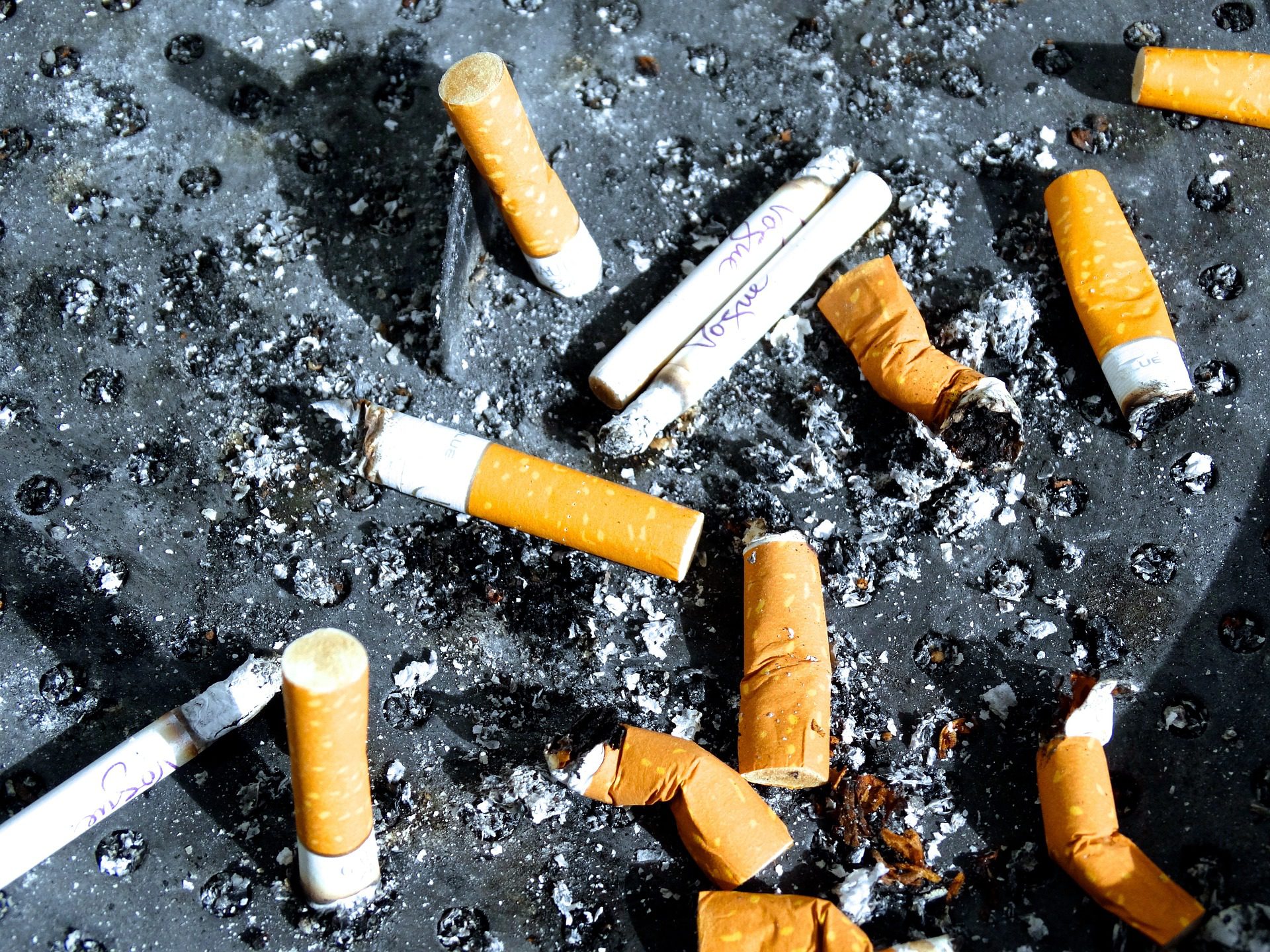
There are many types of litter, big and small, but cigarette litter is one of the most overlooked forms of waste. This is a significant issue that is often overlooked. According to Keep Knoxville Beautiful, worldwide, there are approximately 4.5 trillion discarded cigarette butts, which represents 18 billion every day!
Cigarette butts are among the most polluted items in Tennessee. Understanding and addressing the environmental impacts of cigarette waste is essential when addressing the litter problem.
Here are 7 ways cigarette litter can greatly impact the environment:
Fire Risks
Cigarette butts ignite concerns for the environment because they are potential fire starters, especially when it comes to dry or wildfire-prone regions. Proper waste disposal can help reduce fire hazards because cigarettes, especially those thrown while driving, can spread quickly and affect visibility on the road.
In addition, there is a tremendous economic impact that occurs with wildfires, which can range from firefighting and recovery efforts to property damage.
Wildlife Hazards
The impact on wildlife, in particular, is significant. Birds and marine animals often mistake cigarette butts for food, and when they ingest them, they can choke, suffer from digestive issues or even die. Therefore, it is crucial to dispose of cigarette butts properly and responsibly. Smokers should avoid discarding them on the ground or in the waterways.
Soil Contamination
Cigarette butts contain harmful chemicals like lead and arsenic. When cigarette butts are littered, these chemicals can leach into the ground, contaminating soil and affecting soil health, plant growth and the overall balance of the ecosystem. The damage caused by these toxins is often long-term and affects future biodiversity.
Water Pollution
Since cigarette butts contain harmful chemicals, it stands to reason that it would also create water pollution. As mentioned, cigarette butts can enter waterways, whether lakes or rivers and as such, these toxins can accumulate and pose a significant threat to marine life.
Cigarette litter can also impact the water supply. According to The Truth Initiative, the chemicals leached from a single cigarette butt, soaked in a liter of water, have enough toxins to kill 50% of the freshwater and saltwater fish exposed for 96 hours. Not only does this affect water resources, but also negatively impacts human health.
Microplastic Presence
Similarly, the Truth Initiative also points out that cigarette filters get pushed around by weather events and water, eventually breaking down into microplastics. These microplastics pollute waterways, impacting human food consumption from seafood and have dire consequences for wildlife.
Economic Impact
The economic burden of cigarette butts is hefty and factors into the $23 million it costs Tennessee to pick up litter annually. Not only does this impact the economy in terms of cost and our waterways and environment in terms of resources, but there are also economic consequences that affect tourism. Discarded cigarettes contribute to the litter problem, making the usually pristine environment an eyesore.
Long Decomposition Time
Many people mistakenly believe that cigarettes are biodegradable due to the similarity between cigarette filters and white cotton. However, this couldn’t be further from the truth. The fact is that 98% of cigarette filters come from non-biodegradable plastic fibers, which have a severe negative impact on the environment and can affect future generations.
As noted by UC Berkeley, although ultraviolet rays can degrade cigarettes into smaller particles, toxic substances like formaldehyde, arsenic and polyaromatic hydrocarbons (PAHS) will never break down.
Solutions and Prevention
Together, we can work to reduce the environmental footprint of cigarette litter. First and foremost, learn how to recycle your cigarette butts so they don’t end up on roadways. For example, Keep Tennessee Beautiful and TerraCycle have created a recycling solution specifically for cigarette butts. These are across Tennessee Parks and other Tennessee landmarks, such as Dollywood. TerraCycle also offers shipping to dispose of cigarette waste.
Aside from disposal, there are many enforcement efforts to combat cigarette litter. In Tennessee, you can face a fine, court costs and potentially public service for littering. If you witness someone littering on the Tennessee roadways, you can call the Litter Hotline if the vehicle has Tennessee license plates.
It is up to all Tennesseans to keep the state clean and properly dispose of cigarette waste. Let’s work together towards a cleaner and healthier environment for ourselves and future generations.
Sources
Keep Knoxville Beautiful – Every Litter Bit Matters
Truth Initiative – Land, Coastal and Water Pollution
UC Berkely University Health Services – Facts About Cigarette Butts and Smoke




